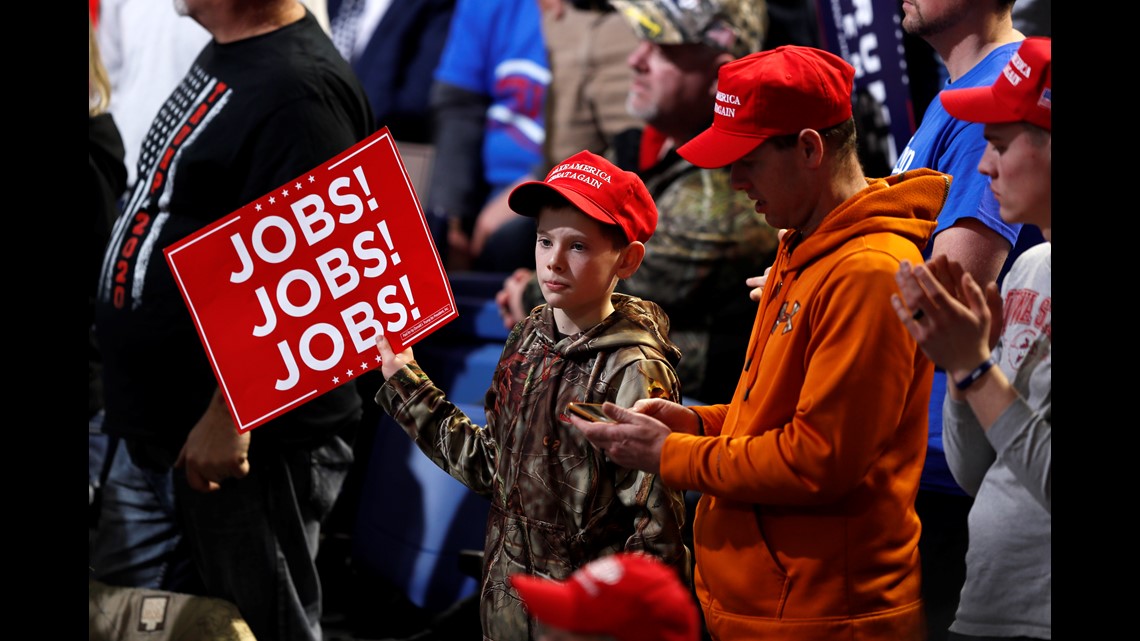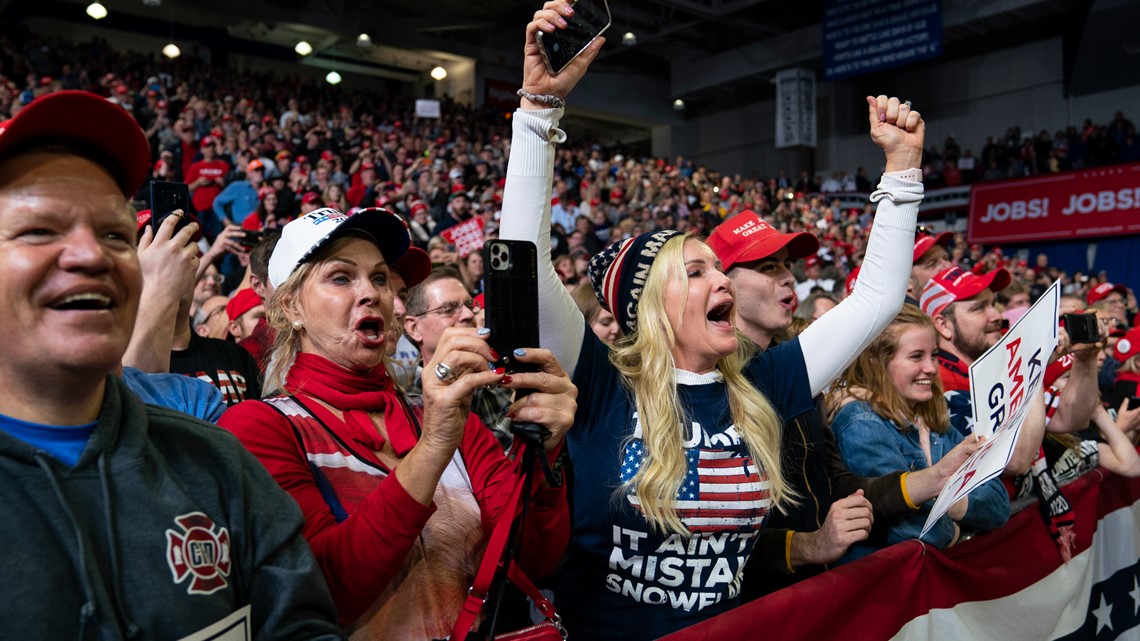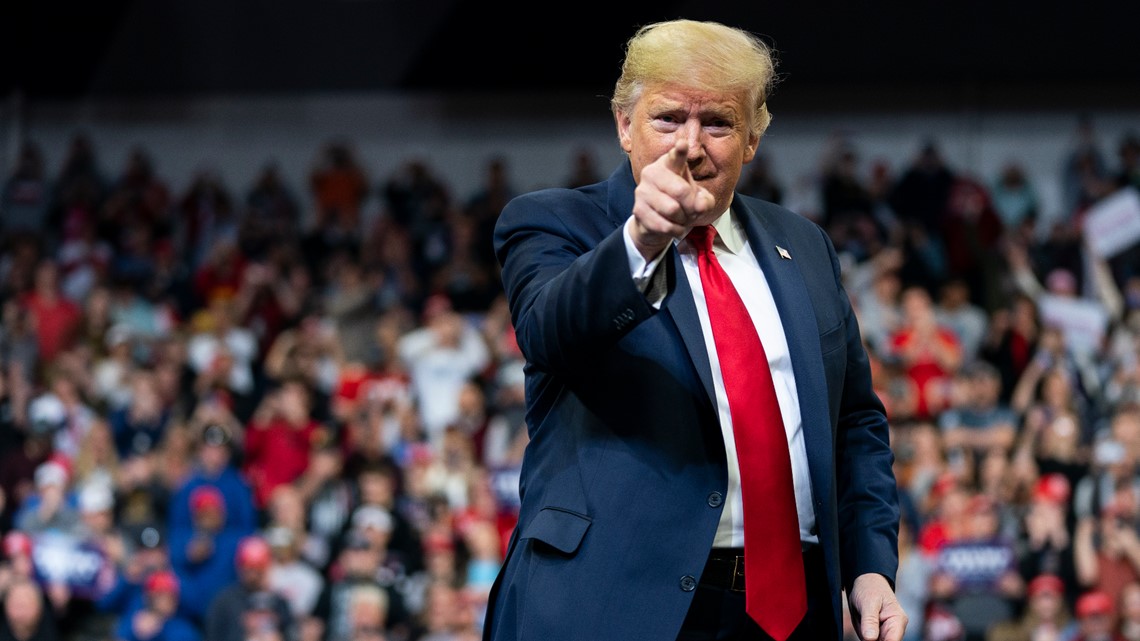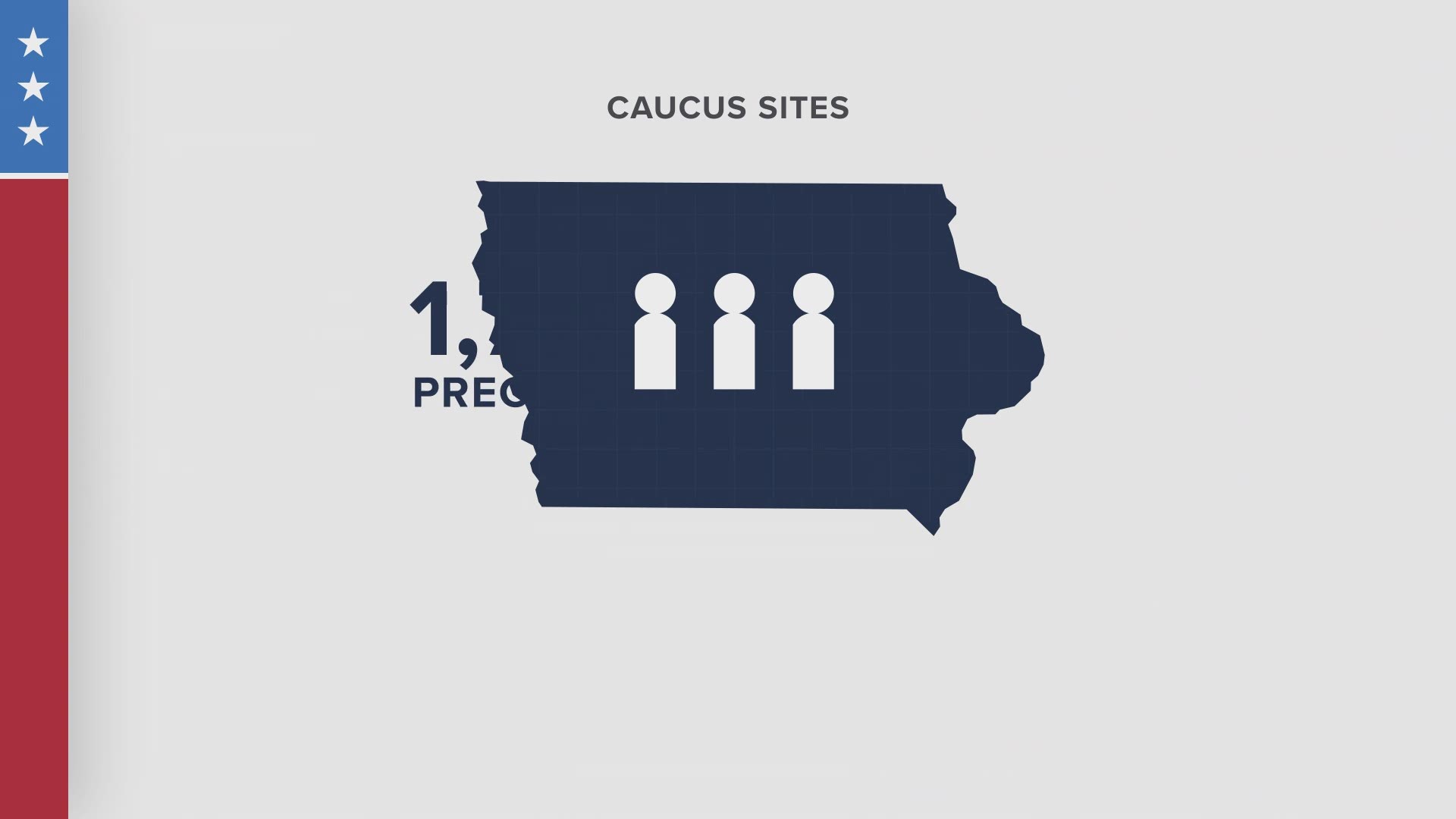DES MOINES, Iowa — “Do you want some of my beef jerky?” asked the man, a producer for Vice Media.
The risers were shaking in the indoor stadium at Drake University, as we waited for the arrival of President Trump at the Knapp Center on a cold Thursday night ahead of the Monday caucuses in Iowa. The salty smell of popcorn and hotdogs from the concession stands was wafting into one of two designated press areas, and I had said aloud that I was hungry.
I told him no thank you, but appreciated the offer—I had heard from friends and other colleagues that the experience of attending a Trump rally could be challenging for reporters, but I went back to my note taking feeling more assured.
A few minutes later, an alumna from our program came over to say hello—she had noticed my purple LSU hoodie poking out from under my blue sports coat. We talked for a few moments.
I explained I was there to work on a research project on how journalists pick their sources. She gave me her card and some tips, and wished me luck. I must have looked a little nervous. I had covered political rallies before, but this felt different.


Below, Jeff Kaufmann, the state’s GOP party chairman, was firing up the crowd. They roared their approval.
Kauffmann, who has a Ph.D. from the University of Iowa, referred to himself as “Dr. Deplorable” — he’s taught history and government at Muscatine Community College. My ears perked up a bit at that—I had gone to a community college, too, and could identify with being told I wasn’t capable, or smart.
A source once told me to my face that my stutter meant that I’d never work in journalism.
Like Kauffman, I come from a military family — and I have served in the military (though I should note here that my opinions are my own). Like Kauffman, I am an academic, working an assistant professor of media law and history at the Manship School at LSU.
After he left the stage, the strains of “Norma Jean,” “The House of the Rising Sun” and “YMCA” blasted the arena, as my fellow media types prepped their cameras and typed up stories, taken from interviews in the milling crowd below, more than 7,000 strong.
When Vice President Pence arrived, I made my way down to the floor, and found an awkward spot among a sea of tripods and microphones in the other media “pen.”
Even as senators back in Washington, D.C., were debating the admission of witnesses and still in the midst of questions for his impeachment trial, the President came on. The crowd’s rumble grew to a crescendo. That, combined with the supercharged soft rock, shook my worse-for-the-wear portable keyboard, its “5” key long since broken.


I’m live-tweeting the event. I can do this. I’ve done it before.
I’m ready when the President points to the assembled media and calls us “fake news,” and says we’re not honest, that we’re liars.
I’m ready for the reverberating boos that result. I take a picture of the crowd as they jeer. I even a wave and smile a bit. Some scowl. But a few wave back. I think some are caught off guard by my LSU garb.
The President talks about trade deals and the economy and impeachment, though only briefly, and about “creating jobs and killing terrorists.” He talks about working “very closely” with China on fighting the coronavirus. The political theater is evident—and the President is skilled at it—he’s really speaking straight to his supporters, and clearly loves the opportunity.
His rhetorical style is meandering, bouncing from topic to topic. Even if you listen closely, it can be hard to follow along. We’re booed a few more times.
And then the President makes a good point, quoting former Secretary of State Hillary Clinton’s “deplorable” comments from September 2016.
To be fair, Clinton also said that half of Trump’s supporters were “people who feel that government has let them down, [that] nobody cares about them, nobody worries about what happens to their lives and their futures, and they are just desperate for change.”
But she also said that half not only fall into the infamous “basket of deplorables,” a line appropriated by many as a kind of badge of honor, but that “some of those folks, they are irredeemable.”
There are nods and shouts of agreement as the President adds that he doesn’t think that they are, that he listens to them, that he is their man “against every one of the socialists,” the Democrats.
In that brief moment, in a two-hour-long speech, I understood more of his appeal to my fellow Americans, especially in person.


I really didn’t mind getting singled out with my fellow journalists. I know that most of them, as we teach our journalism students to do in their communities as they report on sewers, sidewalks and schools, are just doing the best they can, under a ton of pressure. For example: I didn’t see any cameras get turned off, or look away, etc., at the event. We were paying attention.
Maybe it was the mellow nature of Iowans and those from the surrounding states. Or maybe it was because I’m a white male professor and enjoy a lot of access to these kinds of events. In any event, I really did not feel unsafe—uncomfortable? Yes, very, but that’s a professional hazard.
In the end, I wish, and I really do pray, though, that the people in that crowd who booed me could also understand me, even as I try to understand them. Good journalism tells stories and speaks truth to power. We need it if we want to stay a free and open society.
Together, we are not irredeemable.

